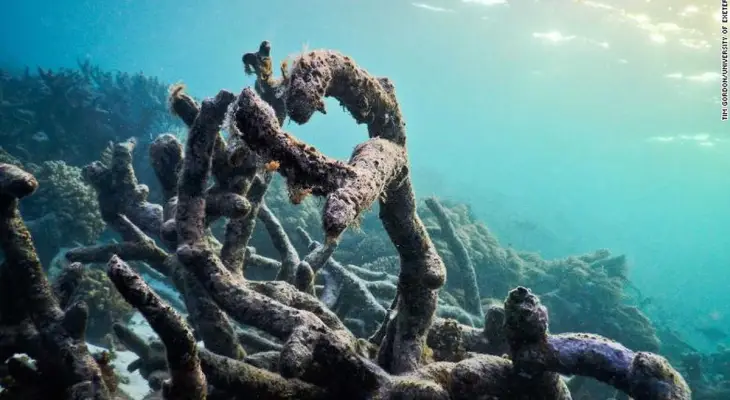Signs of a Serious Climate Crisis Are Already Emerging, Here's What the Study Finds

Holiday Ayo - Surging global temperatures have triggered widespread bleaching and coral reef death across the globe.
Scientists are calling this a sign that planet Earth has reached its first climate tipping point.
Scientists are now studying what's happening to these coral reefs.
As reported by The Guardian on Monday (10/13), according to the Global Tipping Points report, which involved 160 scientists from 87 institutions in 23 countries, global temperatures have already risen by around 1.4 degrees compared to the pre-industrial average.
If left unchecked, coral reefs will struggle to survive on a significant scale. Researchers call this tipping point the moment when the world's major ecosystems reach the threshold of irreversible degradation.
Coral reefs, which are home to a quarter of the world's marine species, are considered the most vulnerable ecosystems to global warming.
Mass coral reef mortality has been seen since 2023.
As reported by Science American on Monday (10/13), the report assesses the risk of exceeding various climate tipping points, including the potential collapse of ice sheets, rising sea levels, and the demise of the Amazon rainforest.
The research team also highlighted the existence of positive tipping points, such as the accelerated transition to clean energy.
In previous assessments, or in 2023, scientists had not declared that the world had reached a climate tipping point.
However, the surge in global temperatures in recent years has heightened concerns that global warming is progressing faster than expected, and its impacts will become more widespread in the coming decades.
The most obvious impact is on coral reefs. In the past two years, warmer waters have triggered massive bleaching events, when corals lose the symbiotic algae that provide them with nutrition and color.
The fourth global bleaching event since the 1980s, which began in January 2023, is estimated to have affected more than 84 percent of coral ecosystems worldwide.
"This is no longer a warning; we're already there," said University of Miami coral ecologist Michael Studivan.
He added that coral reef disturbances are now occurring more frequently without sufficient recovery time.
"We can no longer consider tipping points as future risks. Mass mortality of warm-water coral reefs is already underway," said Professor Tim Lenton of the Global Systems Institute, University of Exeter.








Leave a comment